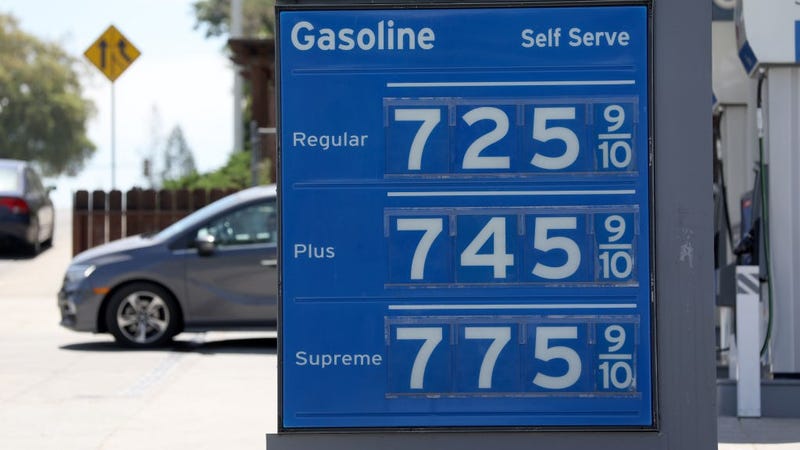
Those who drive high performance or luxury vehicles often rely on premium gas, but with gas prices continuing to rise throughout the United States, is it really necessary to fill your car up with premium gas?
Nearly 16.5 million Americans fill their cars up with premium gas because it's "recommended," but not "required," according to AAA.
"Unless your vehicle manufacturer says premium is required — not recommended, but required — we've found no advantage to using premium fuel," Doug Shupe, program manager at the Automobile Club of Southern California and the AAA, told the Los Angeles Times.
There's a big price difference between regular and premium gas, as the national average for regular is currently $4.671 per gallon and the national average for premium is $5.325 per gallon, according to AAA.
Premium gas cost only $3.657 per gallon last year, and was still about a 60 cent difference from regular, which cost just $3.045 per gallon at this time in 2021.
Switching to regular gas would save people who usually rely on premium a decent chunk of money over the course of a year, depending on how much they drive. AAA's premium fuel research tested both types of gas in cars that are intended to use only regular gas, and the results were interesting.
"AAA tested regular and premium gasoline in vehicles designed to operate on regular-grade fuel," AAA said. "The laboratory testing found no significant improvement in horsepower, fuel economy or emissions, suggesting the practice of using premium gasoline when it’s not required for the vehicle offers no advantage."
John Nielsen, AAA’s managing director of Automotive Engineering and Repair, said in a 2017 report that while premium gas performs better for cars the specifically require it, vehicles that only "recommend" using premium gas don't get the same types of benefits from the more expensive fuel.
"There’s no question that higher-octane premium fuel has the potential to boost a vehicle’s fuel economy and performance, however, engines have to be calibrated to require that fuel to see the full benefit," Nielsen said. "Based on AAA’s testing, vehicles that only recommend premium gasoline can’t take full advantage of higher octane fuel and, as a result, the benefit that comes from upgrading to premium gasoline may not offset its high cost."
Shupe suggested to the Los Angeles Times that drivers who are looking to save money and still get the best performance out of their vehicles should look out for gas stations that sell "Top Tier" fuel.
The "Top Tier" label can be found at the gas pump, and applies to all quality levels of gas. This type of fuel has additives that reduce carbon buildup, and can help extend the engine life of the vehicle.
Most of the popular gas station companies throughout the United States sell "Top Tier" fuel, including Chevron, Exxon, Mobil, Shell, Sunoco, and Valero. There are plenty of other companies who also sell "Top Tier" fuel, according to their list of licensed brands. AAA notes that using "Top Tier" fuel "results in 19 times fewer engine deposits" and "such deposits decrease vehicle performance and reduce fuel economy."
LISTEN on the Audacy App
Sign Up and Follow Audacy
Facebook | Twitter | Instagram